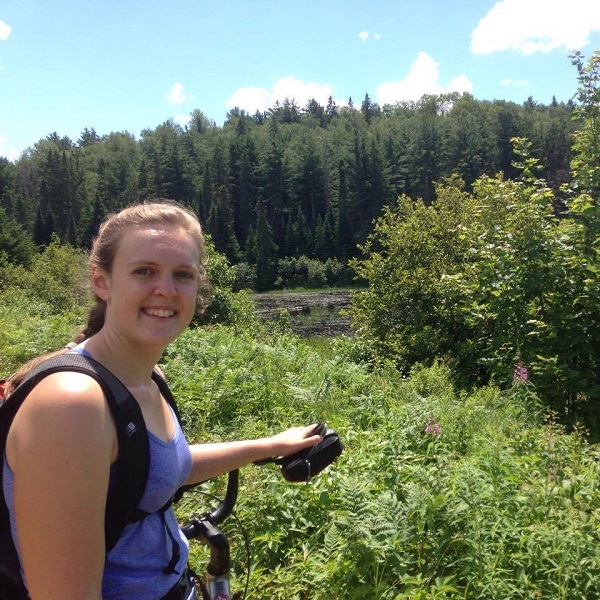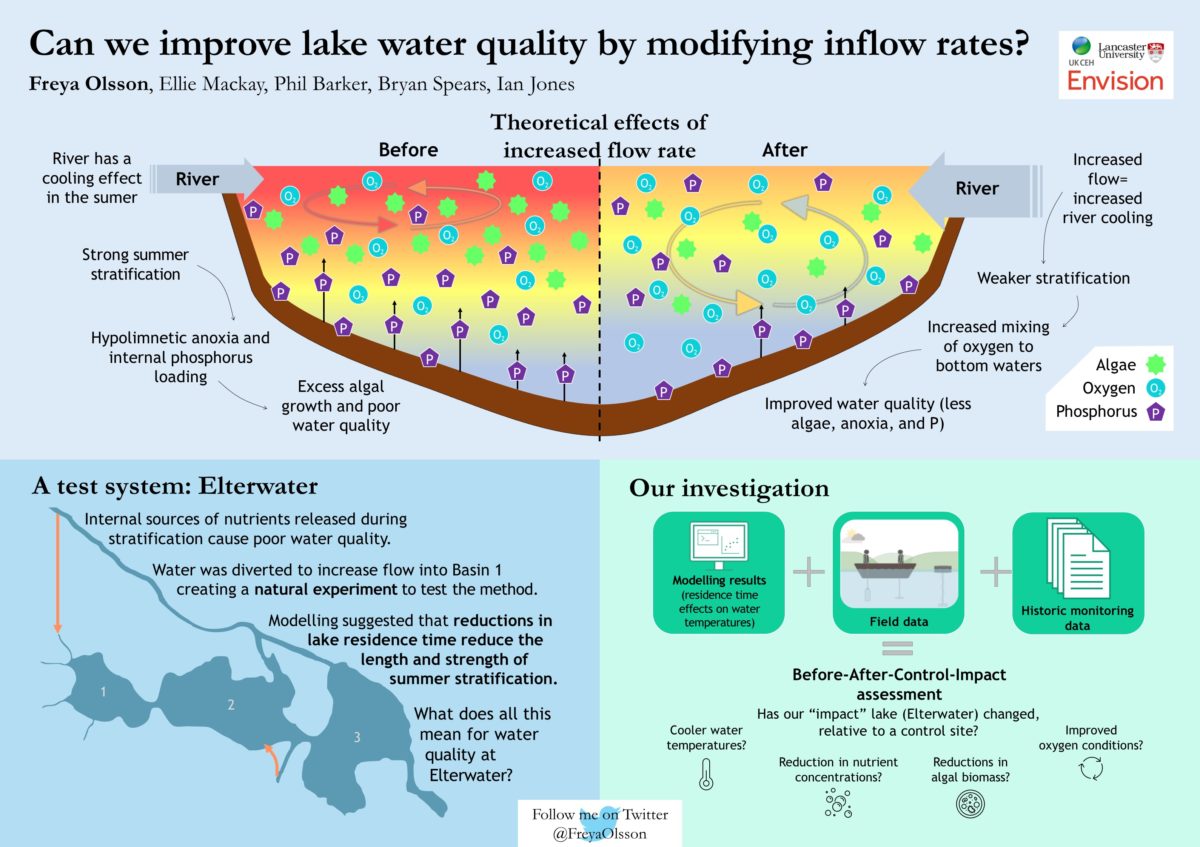Summary
This poster offers an overview of a novel restoration method aiming to improve the water quality in nutrient enriched lake systems. The poster introduces a model system where the restoration has occurred as well as the methodology being used to test the impact of the work. The poster offers insights to lake managers (such as the Environment Agency and Natural England) who may be interested in applying new restoration methods at their lake.
Transcript
Nutrient enrichment is a problem in many lakes globally. High nutrient levels cause blooms of algae and poor oxygen conditions. High nutrient levels can be particularly problematic during the summer when higher temperatures and increased solar radiation cause stratification of the water column. During stratification, oxygen depletes in the deeper waters and nutrients are released from the sediments into the water column. Much research and money has been invested in coming up with effective and cost-efficient methods to improve water quality problems associated with this process. One novel method is to increase the flow of water into a lake basin. In the summer, the inflowing river has a cooling effect on the lake, so increased flow could increase the mixing and reduce the stratification in the lake, thus preventing the loading of nutrients from the sediment into the water column and the associated water quality issues.
A test system
To investigate the potential of this method to improve water quality we are using a model system, at Elterwater in the Lake District, where water has been diverted to increase flow into the first basin of the lake. An initial modelling study suggested that increased flow would reduce lake water temperatures and the duration and strength of the summer stratification. But we now want to understand how these water temperature changes may affect the water quality.
Our investigation
We will be using the temperature modelling results, field sampling data and historic water quality data in a Before-After-Control-Impact assessment. This methodology will enable us to determine what changes have occurred in the test lake (Elterwater), relative to an unchanged control lake nearby. We will be focussing on changes in oxygen conditions, nutrient concentrations and algal biomass.
Freya Olsson

Freya is a 3rd year PhD student based at the UK Centre for Ecology & Hydrology and Lancaster University. In her project, she is using field sampling and computer models to examine at the effects of changes in lake residence time on ecosystem function, with a focus on the use of residence time manipulations in lake restoration. She has also completed a CASE (Collaborative Award in Science and Engineering) partnership with Natural England as part of the broader PhD project.
Email: folsson32@ceh.ac.uk
Twitter: @FreyaOlsson
Organisation: UK Centre for Ecology & Hydrology

